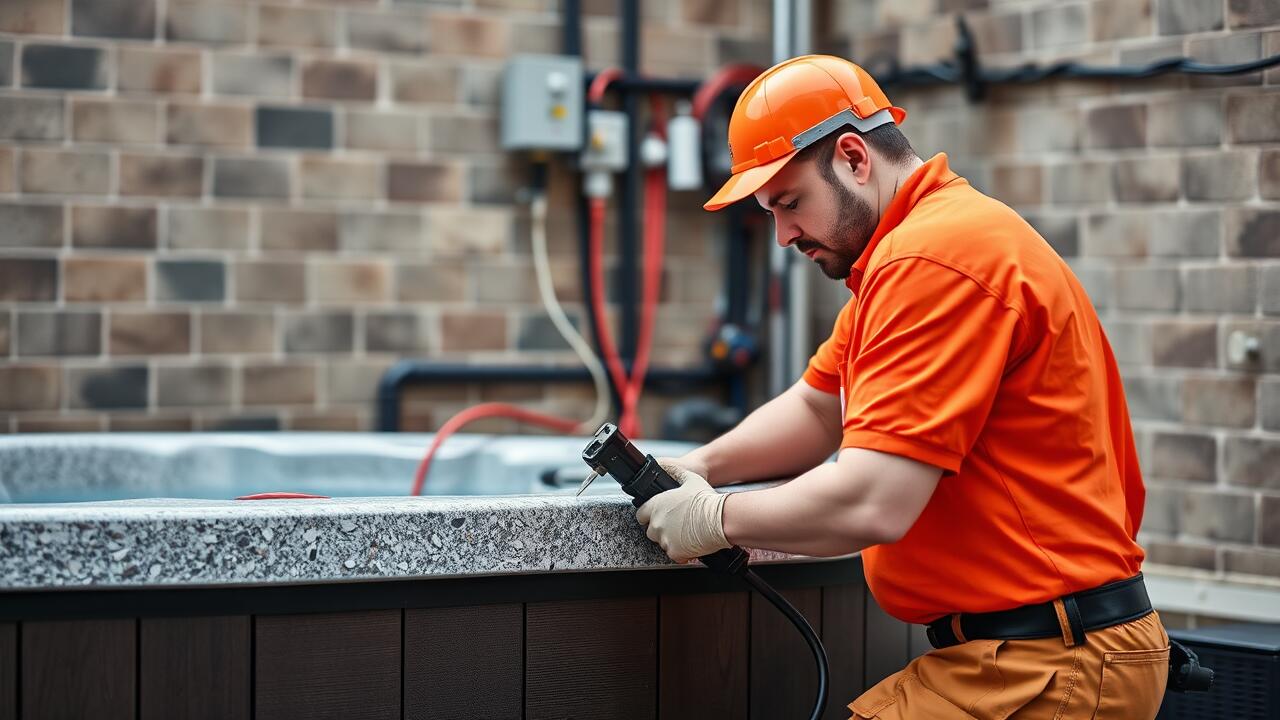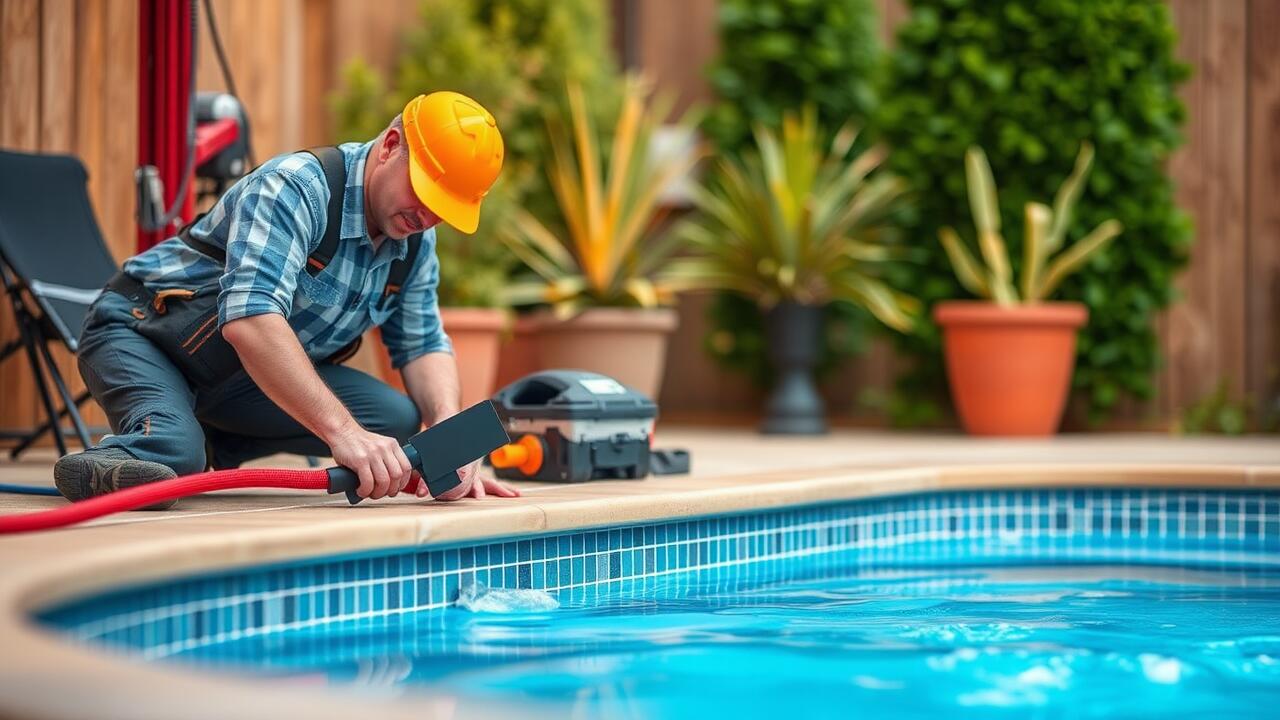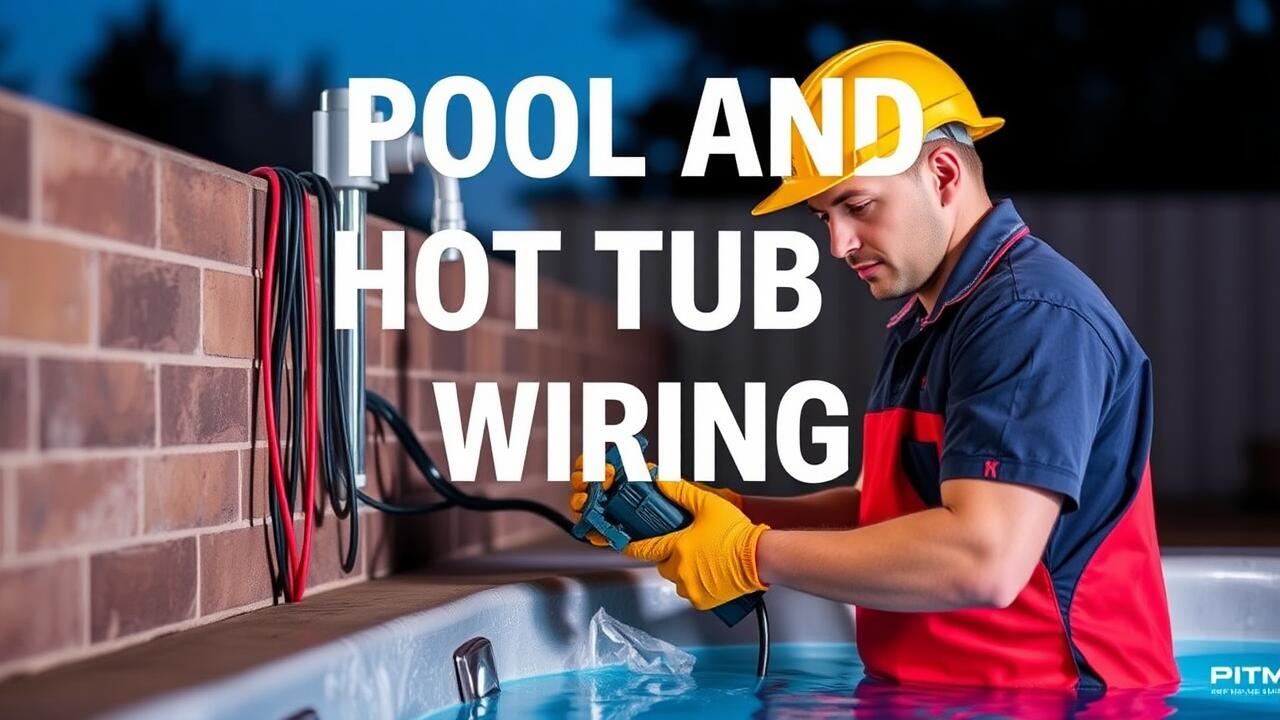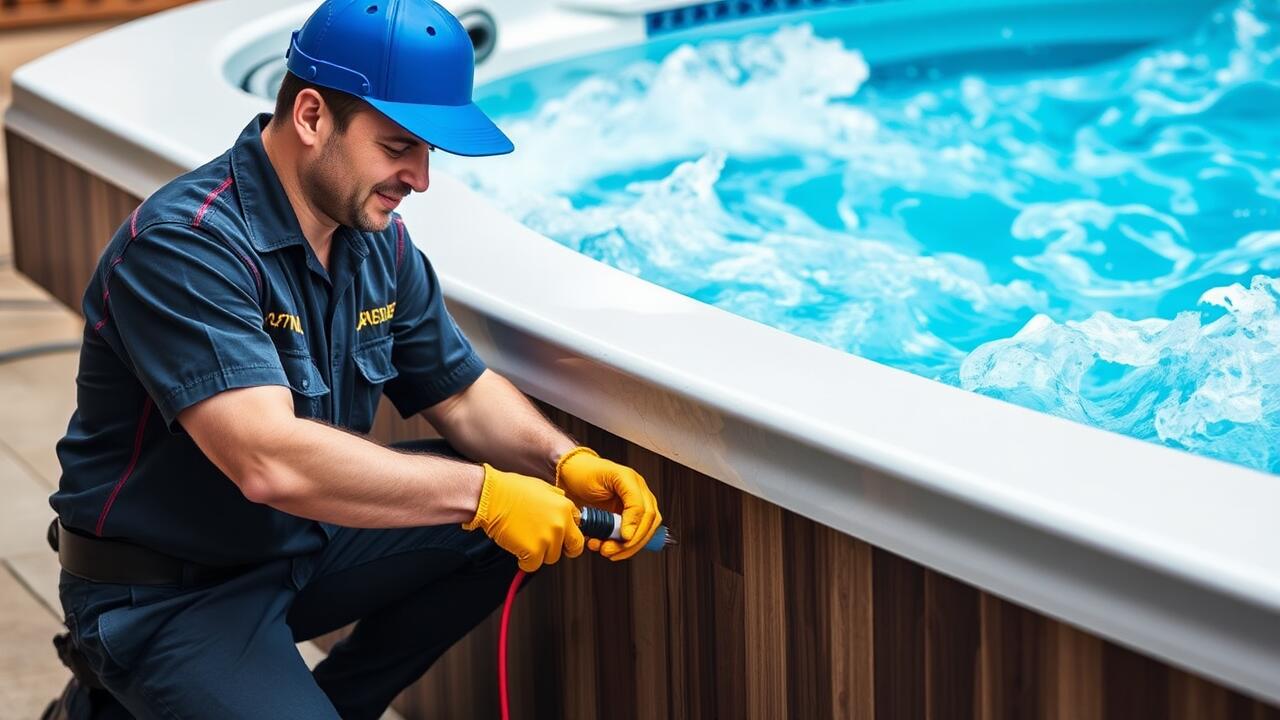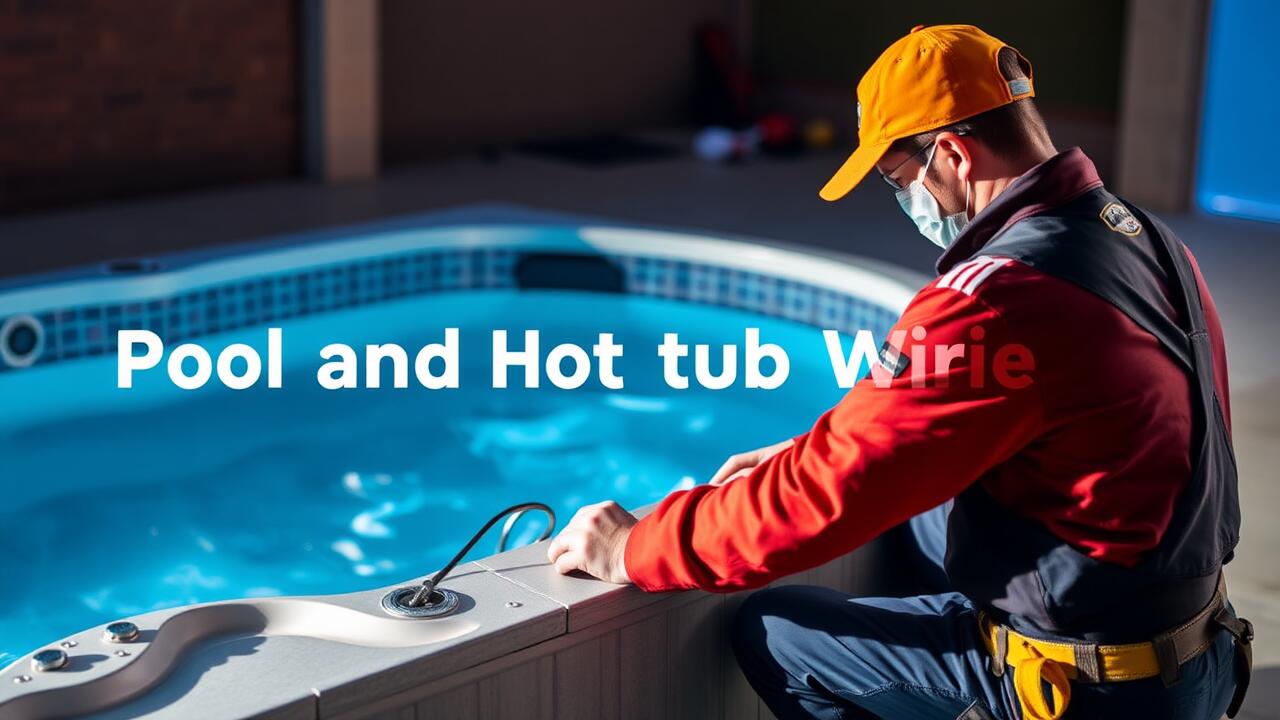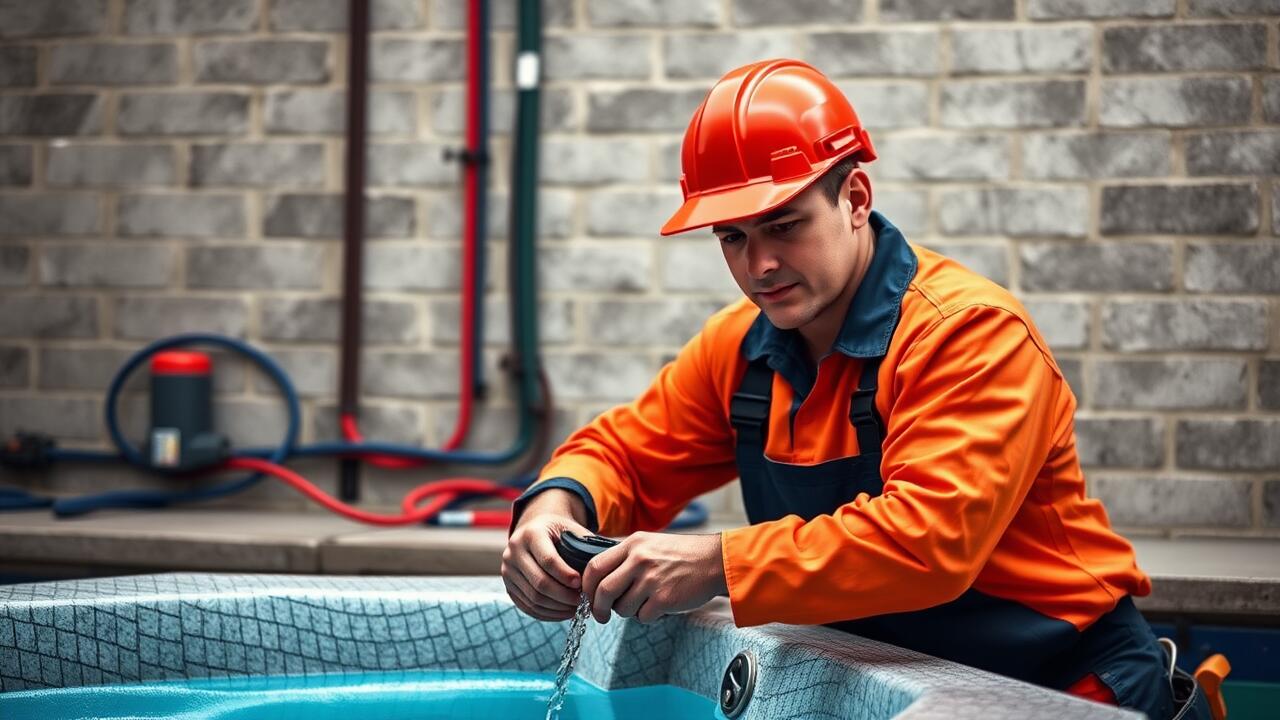
Common Grounding Methods for Pools
Proper grounding methods are essential for ensuring safety in and around pools. One common method involves the installation of ground rods that connect to the electrical system of the pool or spa. These rods are typically driven into the earth near the pool area and linked to the electrical panel. Ground plates are another option that provides a large surface area for grounding, often installed below the pool deck. Both methods aim to direct any potential electrical surges safely into the ground, minimizing the risk of electrical shock.
Maintaining effective grounding for pools requires regular inspections to ensure compliance with local electrical codes. Homeowners often seek expertise by searching for “Pool and Hot Tub Wiring near me” to find qualified professionals who can assess their grounding systems. Key elements to check include the integrity of the connections, the condition of the grounding hardware, and ensuring that all components are properly bonded. By addressing these aspects, pool owners can enhance safety and ensure their electrical systems function as intended.
Utilizing Ground Rods and Ground Plates
Ground rods and ground plates are essential components in establishing a reliable grounding system for pools and spas. Ground rods, typically made of copper or galvanized steel, are driven into the earth to provide a direct path for the electrical current to disperse safely. This minimizes the risk of electric shock, especially in wet environments. The effectiveness of ground rods hinges on factors such as soil conductivity, depth of installation, and the overall size of the rod. Ground plates offer an alternative to rods for grounding and are embedded in the ground, allowing for larger surface area contact with the soil, which can be beneficial in rocky or sandy terrains.
When researching Pool and Hot Tub Wiring near me, it is crucial to ensure that local codes and regulations regarding grounding are followed. Each jurisdiction may have specific mandates concerning the number and type of grounding methods permitted. Homeowners should consider engaging professional electricians who are familiar with these requirements to achieve the best outcomes in safety and compliance. Regular testing and maintenance of these grounding systems also play a key role in ensuring optimal performance and safety for pool users.
Inspecting Your Grounding System
Regular inspections of your grounding system are essential for ensuring the safety of your pool or spa. It is crucial to identify any signs of wear, corrosion, or damage that could compromise the integrity of the grounding components. This may involve checking grounding rods, plates, and connections for any loose fittings. Visual inspections should be supplemented with periodic electrical testing to verify that the grounding system maintains appropriate resistance levels.
When conducting inspections, it is important to consider the overall state of your electrical connections and wiring. Look for frayed wires, exposed connections, and signs of degradation. If unclear about the inspection process or encounter potential issues, seeking assistance from professionals specializing in pool and hot tub wiring near me can provide peace of mind and ensure compliance with safety standards. Regular maintenance should be part of your pool or spa care routine.
Key Elements to Check During Inspections
During inspections of grounding systems for pools and spas, several key elements should be closely examined. First, verify that all grounding conductors are securely connected and free from corrosion. Loose or corroded connections can compromise the safety of the electrical system. It's also important to inspect connections at the bonding lugs, ensuring they are tight and intact. Observing the condition of the wiring insulation can reveal potential hazards, particularly if any wear or damage is present.
Additionally, checking the integrity of grounding rods and plates is crucial. Proper installation depth and spacing are key to effective grounding. Assess the conditions around the grounding electrodes, as moisture levels can affect performance. Homeowners should consider referencing local resources for "Pool and Hot Tub Wiring near me" to ensure compliance with current regulations and standards, which can vary by region. Regular inspections help to maintain safety and prevent electrical shock hazards in and around water features.
Grounding Requirements for Different Pool Types
Different types of pools require distinct grounding methods to ensure safety and compliance with regulations. Above-ground pools typically need a grounding system as outlined by the National Electrical Code (NEC). The key is to bond the metal parts of the pool, such as ladders and rails, to a grounding system. This prevents any electrical currents from presenting a hazard to users. When searching for solutions, it is wise to look for “Pool and Hot Tub Wiring near me” to locate local professionals who understand the specific needs of above-ground installations.
In-ground pools have their own set of grounding requirements. These pools often necessitate a more complex wiring system due to the permanence and various components involved, such as filtration systems and lighting. Grounding for in-ground pools requires the use of a grounding electrode system to effectively dissipate any stray electrical currents. Regular inspections are essential to verify that these systems are functioning properly. Consulting “Pool and Hot Tub Wiring near me” can help ensure adherence to local codes and best practices for in-ground setups.
Above-Ground vs. In-Ground Pool Considerations
When considering grounding requirements, the differences between above-ground and in-ground pools are significant. Above-ground pools often necessitate simpler grounding methods due to their structure and installation. The pool walls themselves can serve as part of the grounding system, especially if made of conductive materials. Additionally, the equipment associated with above-ground pools, like pumps and filters, should also be properly grounded to prevent electrical hazards.
In contrast, in-ground pools require more extensive grounding solutions because of their permanent installation and typically higher volume of water. The bonding of reinforcing steel and other conductive materials in the pool structure is critical for safety. Pool and Hot Tub Wiring near me can help in determining the right specifications and local codes that must be followed for both types of pools. Ensuring that all electrical components are properly grounded is essential to maintain safety for users and to comply with regulations.
FAQS
What is the purpose of grounding for pools and spas?
Grounding is essential for preventing electrical shock hazards by ensuring that any stray electrical currents are safely directed to the ground, reducing the risk of injury to swimmers and maintaining equipment safety.
What are the common grounding methods used for pools?
Common grounding methods include the use of ground rods, ground plates, and bonding all metal components, such as ladders and railings, to a grounding system to ensure electrical safety.
How often should I inspect my pool's grounding system?
It is recommended to inspect your pool's grounding system at least once a year, or more frequently if you notice any signs of wear or damage, to ensure it remains effective and compliant with safety standards.
What key elements should I check during an inspection of my grounding system?
During an inspection, check for proper connections, signs of corrosion, the integrity of ground rods and plates, and ensure that all metal parts of the pool are securely bonded to the grounding system.
Are there different grounding requirements for above-ground and in-ground pools?
Yes, grounding requirements can differ between above-ground and in-ground pools. Above-ground pools typically require bonding of metal parts, while in-ground pools must have dedicated grounding electrode systems and specific bonding practices to ensure safety.
